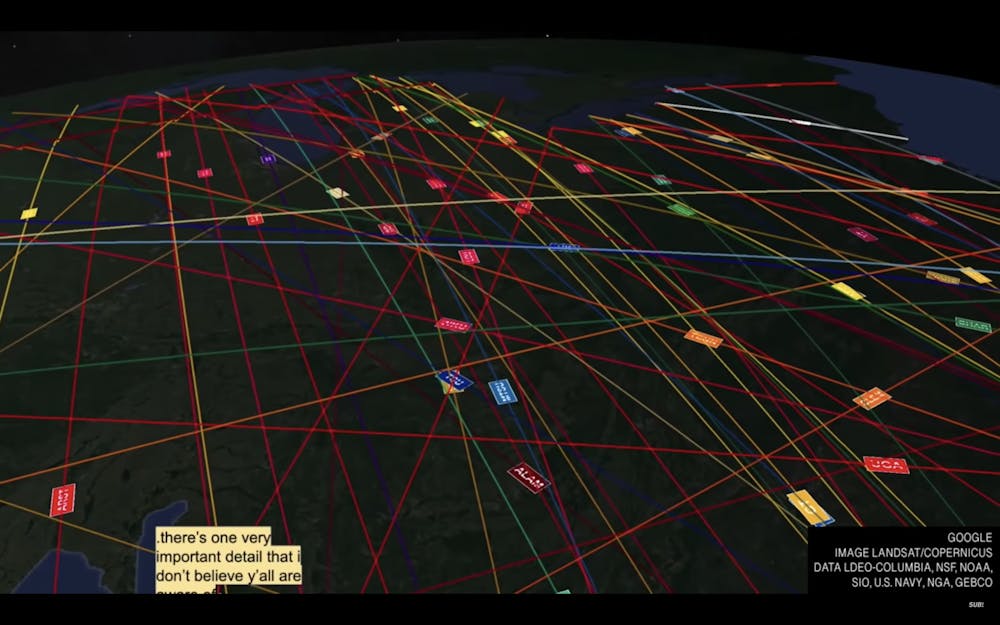It feels like the life I've been living through is a dystiopian novel sometimes.
Though barely self aware, I was 2 years old when the World Trade Center fell, and the subsequent wars were the backdrop of my adolescence. I was 9 during the 2008 recession and felt the effect directly. There's been countless examples of civil unrest in the past decade alone. I've seen marches against police brutality and gun policy, and now the COVID-19 pandemic seems uncontrollable. But in the world of Jon Bois, I only have to survive until 2026.
Jon Bois is traditionally a sports writer that always had a slant toward humor and absurdism. His 2017 novellas "17776," and its recent sequel "20020," shows this like none other. I call them novellas, but there's not really a good term to describe them.
Using a series of images, videos and text, Bois tells the tale of insane football games taking place in the titular year of 17,776. Somehow, without explanation, in 2026 all humanity reached a standstill. No more children were born, but everyone stopped dying and aging as well. However, instead of the typical existential dread most authors would choose to explore, this world is an outright utopia.
Death is an impossibility in the world Bois crafts. Wars stopped and problems have been solved. People have nothing better to do with their time than play football games. And when death, fatigue and injury are no longer a factor, they escalate the rules. Football is played over spans of hundreds of years across fields stretching over miles.
The first game we're shown takes place in Nebraska, with the end zones being the entire Wyoming and Iowa. Players have to dedicate years of their life to running a ball across the entire state, through mountains and ditches, for a game without a prize.
Bois, admittedly, glosses over the long process of how society changed and adapted to immortality, only showing us hints and implications. Despite not having to worry about death anymore, and with having infinite time ahead of them, there are things humans haven't managed to do in the multiple millennia since. Though space travel was accomplished, humans are still lonely, having not found any sign of life on any planet they've reached outside of Earth. The lack of children brings one character to tears. One of the most pivotal things humankind couldn't solve, and couldn't reverse, was global warming. We are shown that New York, among other major cities and countries, lies submerged. But we're told, despite this, all the different cultures of the world are still thriving.
That's the utopia arising from this story. It's less about not having to worry about death or health, the utopia is in the cooperation of all mankind. Human issues don't exist in the macro anymore, there aren't any wars or bigotries to grapple with, just the day-to-day issues of life. It's missing the bus, being afraid to ask someone out or deciding what to eat for dinner.
While the absurd games of football are the draw here, Bois doesn't really care to make the story about them. It's about these small moments where it's explained why, despite the infinite time they have, humans choose the difficult and mundane, the problems that are inescapable. And that idea struck me harder than it thought I would.
I can't remember the last time my biggest worry was what to eat for dinner or if I was going to miss the bus. Those were problems, yes, but they weren't ever a focus. They have been small issues compared to the election, compared to the pandemic. But that's the norm for humans past immortality, a world where you can truly only focus on the self.
It's naive to think it was an easy transition to the utopia Bois wrote. Issues like racism and sexism are rooted deep, present for centuries. But it's already tens of thousands of years later by the time we start reading. The population is static and the threat of death and injury no longer exist.
But in a time where everywhere I turn, I'm faced with issues much bigger than me, issues that seem impossible to solve, "17776" and "20020" tell me in plain terms that these issues are man-made. And if man made them, we can surely dismantle them, it just takes time.






